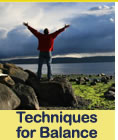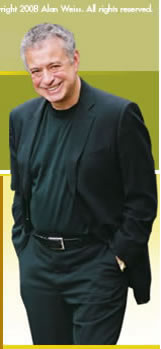    

Techniques for overcoming a gaffe Some things really can't be ignored, such as calling your dining companion by the wrong name, allowing food to fall from your mouth, stepping on someone's foot, making inappropriate and involuntary noises, well, you get the idea. We've all been there and done that. Here are some recoveries in case all preventive actions fail.

Pride It's slightly after 8 am, and I'm coasting down to New York on the Acela, hugging Long Island sound for most of the trip. This is a 60-degree day in early January, so the fog encroaches like a silent strangler bent on mayhem. The first class car is filled. Two attendants work the car, effortlessly serving breakfast to people who boarded at both Boston and Providence. Meals are served and cleared efficiently amidst passenger conversations, cell phone calls, computers, PDAs, newspapers, and the usual detritus of a three-hour commute. I've taken this train all the way to Washington and back, since I stay off airplanes if I possibly can. The service has ranged from surly in an empty car, to this morning's wonderful service in a full car. The difference isn't in the passengers, the nature of the service, or the time of day. It's in the pride of the crew. I bought my newspapers this morning in the Providence station, something I often dread because of the horrible personality of the woman who works there in the morning. Thus, I was shocked this morning by a hearty "Good morning!" and an offer to help me from a new woman, who evidently believed that you make the best of any job. My newspaper experience was suddenly wonderful. (I told her this. "Oh, thank you!" she blushed.) Part of victimhood is believing (or merely claiming) that the job, the boss, the environment, the government, the regulations, and/or "they" are preventing you from doing well. The antithesis of victimhood is the belief that you can improve your own job and lot despite interference and influence of others. We control more than we think. I think this individual pride, and its ability to transform work and relationships, is a crucial consideration in terms of who we hire, who we become friendly with, and with whom we decide to surround ourselves. If we hang out with people who hate the work, hate the customers, hate life, and feel constantly oppressed, we'll find ourselves subsumed in that quagmire. But if we surround ourselves with people who merely believe that they have the power and responsibility to do the best they can, so will we. It's customary to tip the first class attendants, though not all people do. When I proffered a generous gratuity upon disembarking, one of the attendants said, "Why thank you, sir!" I said, "No, thank you!" 
I've come to believe that in the vast preponderance of cases, there is no such condition as "not enough money" or "not enough time." I know that sounds specious, but read on a bit. We tend to regard time and money as resource issues. But they are not. They are priority issues. That is, we all have money and time (and although we can't create more time we can create more money), so the question is really: Where do we choose to invest them? In a business setting, when a prospect says, "I would love to do this, but we just can't fit it in this quarter and we have no budget left, so call me in a few months," we are really hearing, "This isn't important enough compared to other things we're doing to take time and money away from them to give to you." Similarly, in our personal lives, when we say, "I just don't have the time to see the kids' soccer game," we're actually saying, "Seeing my kids in a soccer game is less important than my business appointments" (or lunch with friends, or salon appointment, or repairing the porch). We each have 24 hours in a day. There are certain reasonable demands on our time (work requirements, civic requirements, sleep) and certain unreasonable demands on our time (mindless habits, fretting, failure work, limitless email). If you agree with me at all that discretionary time is wealth, then the question becomes how we invest our money and our wealth. We do have limits on our finances, but not as draconian as we lead ourselves to believe. We have all made impulse purchases, even though there was no money "allocated" for that purpose. We've invested in traveling to places or engaging in activities because others have, not because they are highly enticing to us. People tend not to realize that they can create money for something simply by refraining from doing something else. A fundamental question for all of us is: What do we intend to include in the day? Is our day foist upon us by someone else, by "circumstances," by perceived "obligations"? Is our money peremptorily allocated by arbitrary activities, forced savings, and guilt? Or do we examine each separate day and make decisions about our short-term and long-term priorities? When everything is a priority, nothing is a priority. And when you believe your resources force your decisions, and that you have limited, pre-allocated resources, then you have no priorities. Life is about doing what's really important while you can. 
We are as our dogs. Koufax is an aloof, independent, bright German Shepherd who suffers no fools, gladly or otherwise, and has his own interests. You cannot pet him if he doesn't feel like being petted, and he usually doesn't. He is feared outside and rules his turf. Buddy Beagle is affable and socially initiating. He loves interacting, you can't pet him enough, and I'm sure he would be considered a brilliant canine conversationalist. He's not big and powerful, but he uses charm and shrewdness to get his way. So, the other night my wife and I are watching television and the phone rings. I never answer the home phone if I can avoid it, so she reaches for her extension. I hear the following one-sided conversation from her only, on our end: "Hello?" "Who was that?" I asked. |

Balancing Act® is our registered trademark. You are encouraged to share the contents with others with appropriate attribution. Please use the ® whenever the phrase "Balancing Act" is used in connection with this newsletter or our workshops. Our subscriber count is now 7,656. The Coach
A 1.5 day workshop on coaching in March outside of Providence, featuring real people being coached, techniques, brands, marketing, fees, and a special charity dinner with the lovely Maria for Smile Train, as well as one with me for the animals. The Strategist sold out. First come, first served. Million Dollar Consulting College
I'm running another in the first quarter, the week of March 31 in Newport, RI. November was a huge success, and you can see photos on my site. The last time I said that, I had 18 people register! Last one before the Graduate School in April. Renaissance Journey
My favorite program to run, maximum of 10 people. It is scheduled for June 14-15 in Newport. A long weekend of exploration of happiness, relationships, growth, and laughter. Exceptional facility and meals. Write me if you'd like to discuss or register: The Strategist in LondonFebruary 21-22, 2008
The U.S. offering in October is sold out and highly acclaimed! Anyone from North America attending the London session will have dinner with Alan at one of his favorite and most unusual London restaurants. We have 30 people from six countries thus far. TWO SEATS LEFT! The Odd Couple®
Marketing techniques for professional and aspiring speakers, San Francisco, March 8-9. Great location, great fun, great learning. "Cutting someone off before they are finished speaking doesn't mean you're smart. It means you've stopped learning." -- AW 
|
|
Balancing Act® is a monthly electronic newsletter discussing the
blending of life, work, and relationships, based on the popular
Balancing Act workshops and writing of Alan Weiss, Ph.D. Contact us
for further information at: [email protected].
|
|

